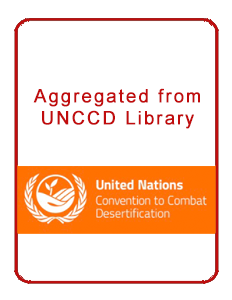Progress Towards the SDG Land Degradation and Restoration Commitments
Since the commitments and reporting requirements of the SDGs ov erlap significantly with those of the UNFCCC and UNCCD, policy designe rs have mutually reinforcing incentives to advance this SDG commitment. When env ironmental degradation is minimized and restoration efforts are prioritized , ecosystems can sequester and store more carbon and lessen the impact of some c limate change effects.


